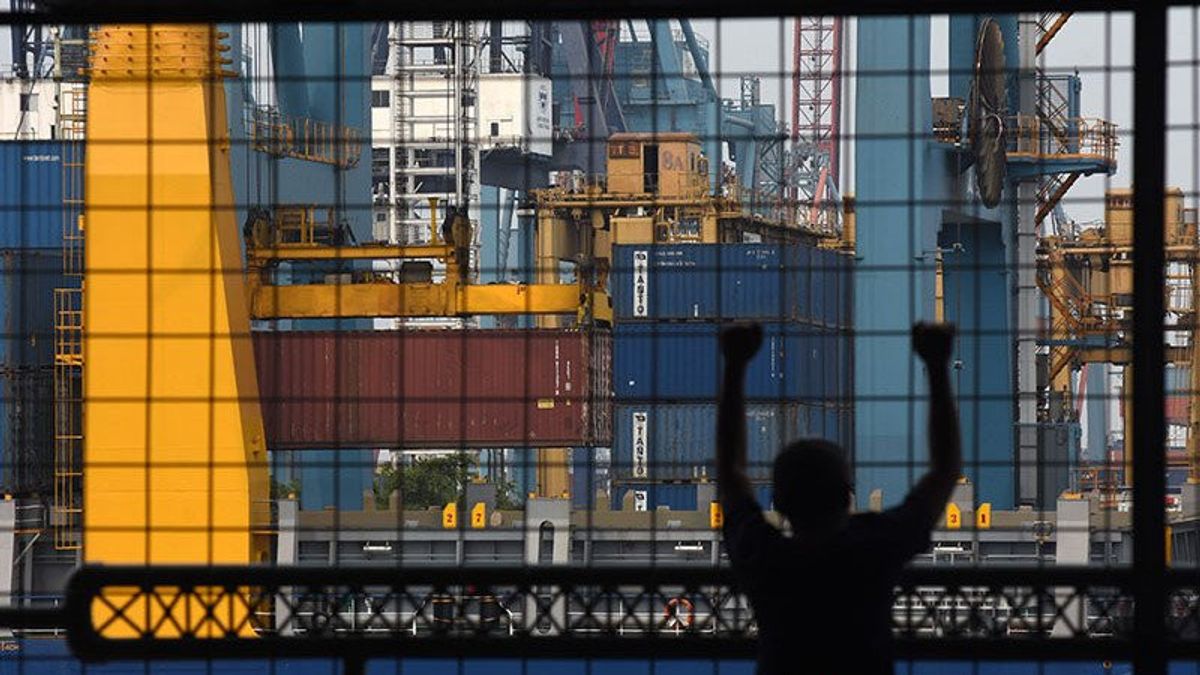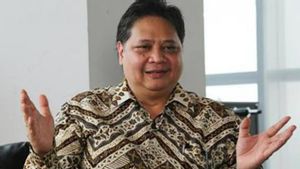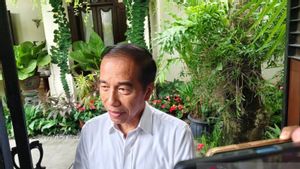JAKARTA - The Center of Reform Economics CORE said Indonesia has the ability to continue to accelerate economic recovery. CORE projects that the national economy in 2023 will be able to grow 4.5 to 5 percent. The projection is lower than the one installed by the government. Where the government projects the national economic growth in 2023 to be 5.3 percent. The projection of national economic growth in 2023 is much higher than the global economic outlook. Executive Director of CORE M. Faisal said that Indonesia's economic growth next year will be on a positive track. In fact, economic growth will also be accompanied by an increase in investment. "In 2023, we predict that it will return to pre-pandemic conditions, where investment returns to number two and investment growth in Indonesia is not expected to be disrupted much by global economic pressure," he said in Jakarta, Wednesday, December 7. In addition, Faisal said, household consumption is expected to remain strong, inflation rates will decline and attract it next year, in line with the weakening of export thrust, investment will again become the second largest source of growth for national gross domestic product (GDP). "The support for future is actually the trend of investment in 2023, because one we estimate domestic consumption is still strong, so the secondary sector manufacturing industry is also still experiencing expansion and it means that investment is still prospective," explained Faisal.
During the COVID-19 pandemic, said Faisal, especially throughout 2020, the manufacturing industry on aggregate continues to grow. Then now, where people start their activities, mobility is high, the service sector will also grow. "The mobility restriction must be at least from the service sector, it has started to increase growth again, meaning that the investment prospects are quite good," he said. Faisal assessed that one of the industries that has developed and will get worse next year is the derivative industry, downstream mining goods, including nickel. This is in line with the world's trend towards green vehicles, as well as the Indonesian government's progress in the production of electric cars (EVs).
Previously, Coordinating Minister for Economic Affairs Airlangga Hartarto conveyed that according to President Joko Widodo's direction, his party would accelerate various investment licensing as well as the development of upstream and downstream ecosystems from Electric Vehicle (EV). Starting from batteries to EV-based automotive industries, four-wheeled or two-wheeled planning, ecosystem planning, as well as incentives that need to be given. "Therefore, related to this ecosystem, it is asked to explore various commodities, be it bauxite, aluminum, and nickel along with ecosystem integration in the form of battery EVs that certainly require nickel, cobalt, manganese, and other commodities," he said. Target Growth of 5.3 Percent Still Realistic Meanwhile, Executive Director of Segara Institute Piter Abdullah Redjalam assessed that the government was still realistic when installing national economic growth projections at 5.3 percent. "In my opinion, it is realistic," said Piter. Piter said. Piter revealed that Indonesia's economic growth projection in 2023 was in the range 4.8-5.3 percent. So when the government puts a growth projection at 5.3 percent, it is still acceptable. "I project that Indonesia's economic growth in 2023 will be in the range of 4.8-5.3 percent. So if the government projects that 5.3 percent is an optimistic but still realistic figure," he said. According to Piter, Indonesia's economic conditions are different from many other countries. This is because Indonesia relies more on domestic consumption as the main support of the economy. "Because indeed Indonesia's conditions are different from global conditions. Indonesia's economy is more supported by domestic consumption," he said. Meanwhile, when the global economy is currently gloomy and commodity prices tend to rise, said Piter, Indonesia tends to benefit from such price increases. This is what makes Indonesia's economic growth optimistic that it could reach a 5 percent figure even though the global economy is haunted of recession. On the other hand, despite the dire global conditions, Indonesia actually gets windfall from rising commodity prices," he concluded.
The English, Chinese, Japanese, Arabic, and French versions are automatically generated by the AI. So there may still be inaccuracies in translating, please always see Indonesian as our main language. (system supported by DigitalSiber.id)













